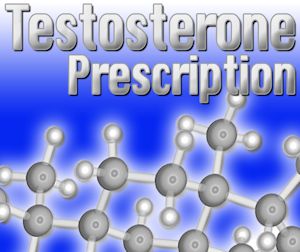Introduction to Nutropin
Nutropin, a brand name for recombinant human growth hormone (rhGH), has garnered significant attention in the realm of athletic performance enhancement. Marketed primarily for the treatment of growth hormone deficiency in children and adults, its off-label use among athletes seeking to boost performance has sparked both interest and controversy. This article aims to clarify the myths and present the facts about Nutropin's impact on athletic performance, specifically tailored to American males.
The Mechanism of Nutropin
Nutropin works by mimicking the action of the body's natural growth hormone. It stimulates growth, cell reproduction, and regeneration in humans. The hormone's primary role is to enhance physical growth in children, but it also affects muscle and bone metabolism in adults. In athletic contexts, it is believed to increase muscle mass, reduce fat, and improve recovery times after intense workouts.
Myths Surrounding Nutropin in Athletics
One prevalent myth is that Nutropin can dramatically transform an average athlete into a top performer. This belief stems from anecdotal evidence and isolated cases where athletes have used the hormone and seen improvements. However, these cases often overlook other contributing factors such as diet, training regimen, and genetic predisposition.
Another myth is that Nutropin use is safe and without significant side effects. While the drug is generally safe when used under medical supervision for approved indications, its misuse can lead to serious health issues, including acromegaly, diabetes, and cardiovascular disease.
Facts About Nutropin and Athletic Performance
Research on Nutropin's effects on athletic performance has yielded mixed results. Some studies suggest a modest increase in muscle mass and strength, but these benefits are often not significant enough to justify the risks. A meta-analysis published in the *Journal of Clinical Endocrinology & Metabolism* found that while growth hormone can increase lean body mass, it does not consistently enhance athletic performance.
Furthermore, the World Anti-Doping Agency (WADA) has banned the use of Nutropin and other growth hormones in competitive sports due to their potential for unfair advantage. American males involved in competitive sports should be aware that using Nutropin could lead to disqualification and damage to their reputation.
Health Risks and Ethical Considerations
The health risks associated with Nutropin misuse cannot be overstated. Prolonged use can lead to an overgrowth of bones and tissues, resulting in conditions like acromegaly, which can cause disfigurement and severe health problems. Ethically, the use of performance-enhancing drugs raises questions about fairness and the integrity of sports. American males should consider these implications before deciding to use Nutropin for non-medical purposes.
Legal and Regulatory Aspects
In the United States, Nutropin is a prescription medication, and its use for non-medical purposes is illegal. The U.S. Anti-Doping Agency (USADA) enforces strict regulations against the use of performance-enhancing drugs, including Nutropin, in sports. American males should be aware of these legal ramifications and the potential for criminal charges if caught using the drug illicitly.
Conclusion: Making Informed Decisions
For American males interested in enhancing their athletic performance, it is crucial to separate the myths from the facts about Nutropin. While the drug may offer some benefits in terms of muscle growth and recovery, the risks and ethical considerations far outweigh these potential advantages. Athletes should focus on natural methods of performance enhancement, such as proper nutrition, training, and rest, to achieve their goals safely and ethically.
In summary, Nutropin's role in athletic performance is a complex issue that requires careful consideration. By understanding the science behind the drug and the potential consequences of its misuse, American males can make informed decisions that prioritize their health and integrity in sports.
Contact Us Today For A Free Consultation

- Unveiling the Role of Nutropin in Managing Noonan Syndrome: A Targeted Approach to Genetic Disorders [Last Updated On: February 24th, 2025] [Originally Added On: February 24th, 2025]
- Nutropin's Role in Managing Growth Hormone Deficiency in American Male Adolescents [Last Updated On: March 10th, 2025] [Originally Added On: March 10th, 2025]
- Unlocking the Potential: Nutropin's Role in Enhancing Growth for Small for Gestational Age Infants [Last Updated On: March 13th, 2025] [Originally Added On: March 13th, 2025]
- Unveiling the Potential of Nutropin in Managing Growth Challenges in Prader-Willi Syndrome [Last Updated On: March 15th, 2025] [Originally Added On: March 15th, 2025]
- Exploring Nutropin's Impact on Blood Sugar Levels: Strategies for Managing Diabetes Risk in American Males [Last Updated On: March 16th, 2025] [Originally Added On: March 16th, 2025]
- Exploring Nutropin's Role in Thyroid Health Management for American Males [Last Updated On: March 16th, 2025] [Originally Added On: March 16th, 2025]
- Nutropin and Vitamin Synergy: A Comprehensive Approach to Male Nutritional Health [Last Updated On: March 16th, 2025] [Originally Added On: March 16th, 2025]
- Nutropin's Impact on Adrenal Health in American Males: Monitoring and Management [Last Updated On: March 16th, 2025] [Originally Added On: March 16th, 2025]
- Unveiling the Impact of Nutropin on Skin Health: Enhancing Collagen and Elasticity in American Males [Last Updated On: March 16th, 2025] [Originally Added On: March 16th, 2025]
- Nutropin's Cardiovascular Risks and Benefits in American Males: A Detailed Analysis [Last Updated On: March 19th, 2025] [Originally Added On: March 19th, 2025]
- Nutropin Enhances Immune Function in American Males: Benefits and Considerations [Last Updated On: March 19th, 2025] [Originally Added On: March 19th, 2025]
- Nutropin: Reversing Growth Hormone Decline in Aging American Males [Last Updated On: March 19th, 2025] [Originally Added On: March 19th, 2025]
- Nutropin's Psychological Impact on American Males: Benefits, Risks, and Support Needs [Last Updated On: March 20th, 2025] [Originally Added On: March 20th, 2025]
- Nutropin's Impact on American Males: Beyond Growth to Psychological and Social Well-being [Last Updated On: March 20th, 2025] [Originally Added On: March 20th, 2025]
- Nutropin's Role in Enhancing Cognitive Function in American Males: A Comprehensive Review [Last Updated On: March 20th, 2025] [Originally Added On: March 20th, 2025]
- Nutropin's Impact on Insulin Sensitivity in American Males: Benefits and Considerations [Last Updated On: March 20th, 2025] [Originally Added On: March 20th, 2025]
- Nutropin Enhances Sleep, Recovery, and Metabolic Health in American Males [Last Updated On: March 21st, 2025] [Originally Added On: March 21st, 2025]
- Nutropin's Role in Muscle Development: Benefits, Risks, and Integration into Fitness [Last Updated On: March 21st, 2025] [Originally Added On: March 21st, 2025]
- Nutropin's Impact on Lung Development in American Males: Research and Implications [Last Updated On: March 22nd, 2025] [Originally Added On: March 22nd, 2025]
- Nutropin and Cancer Risk in American Males: Current Evidence and Clinical Implications [Last Updated On: March 22nd, 2025] [Originally Added On: March 22nd, 2025]
- Nutropin: Enhancing Growth and Joint Health in American Males [Last Updated On: March 22nd, 2025] [Originally Added On: March 22nd, 2025]
- Nutropin's Impact on Eye Health in American Males: Benefits and Risks [Last Updated On: March 22nd, 2025] [Originally Added On: March 22nd, 2025]
- Nutropin's Impact on Blood Sugar: Diabetes Management Strategies for American Males [Last Updated On: March 22nd, 2025] [Originally Added On: March 22nd, 2025]
- Nutropin's Impact on Gastrointestinal Health in American Males: Benefits and Management [Last Updated On: March 23rd, 2025] [Originally Added On: March 23rd, 2025]
- Nutropin's Impact on Collagen and Skin Elasticity in American Males [Last Updated On: March 23rd, 2025] [Originally Added On: March 23rd, 2025]
- Nutropin's Potential in Enhancing Hair Growth for American Males: A Scientific Review [Last Updated On: March 23rd, 2025] [Originally Added On: March 23rd, 2025]
- Nutropin's Impact on Liver Function in American Males: Risks and Management [Last Updated On: March 23rd, 2025] [Originally Added On: March 23rd, 2025]
- Nutropin's Impact on Adrenal Health in American Males: Risks and Management [Last Updated On: March 23rd, 2025] [Originally Added On: March 23rd, 2025]
- Nutropin's Impact on Allergic Reactions in American Males: A Comprehensive Analysis [Last Updated On: March 23rd, 2025] [Originally Added On: March 23rd, 2025]
- Nutropin Therapy in Males: Growth Benefits and Dental Health Management [Last Updated On: March 23rd, 2025] [Originally Added On: March 23rd, 2025]
- Nutropin: A Novel Approach to Managing Inflammation in American Males [Last Updated On: March 23rd, 2025] [Originally Added On: March 23rd, 2025]
- Nutropin's Potential in Managing Anemia: Mechanisms, Evidence, and Considerations for American Males [Last Updated On: March 24th, 2025] [Originally Added On: March 24th, 2025]
- Nutropin Therapy: Benefits, Risks, and Impact on Auditory Health in American Males [Last Updated On: March 24th, 2025] [Originally Added On: March 24th, 2025]
- Nutropin Therapy in American Males: Enhancing Efficacy Through Optimal Hydration [Last Updated On: March 24th, 2025] [Originally Added On: March 24th, 2025]
- Nutropin's Impact on Male Fertility: Benefits, Risks, and Future Research [Last Updated On: March 25th, 2025] [Originally Added On: March 25th, 2025]
- Nutropin Therapy: Pre-Surgical Planning to Post-Op Care for American Males [Last Updated On: March 25th, 2025] [Originally Added On: March 25th, 2025]
- Nutropin's Potential in Treating Autoimmune Disorders in American Males: Emerging Evidence [Last Updated On: March 25th, 2025] [Originally Added On: March 25th, 2025]
- Nutropin's Impact on Insulin Production in American Males: A Comprehensive Analysis [Last Updated On: March 25th, 2025] [Originally Added On: March 25th, 2025]
- Nutropin's Effect on Vaccine Response in American Males: A Comprehensive Analysis [Last Updated On: March 25th, 2025] [Originally Added On: March 25th, 2025]
- Nutropin Therapy and Thyroid Health: Monitoring and Management for American Males [Last Updated On: March 25th, 2025] [Originally Added On: March 25th, 2025]
- Nutropin's Impact on Cholesterol Levels in American Males: A Lipid Profile Analysis [Last Updated On: March 25th, 2025] [Originally Added On: March 25th, 2025]
- Nutropin Therapy Enhances Fitness: Tailored Exercise and Nutrition for American Males [Last Updated On: March 25th, 2025] [Originally Added On: March 25th, 2025]
- Nutropin Therapy: Monitoring and Managing Cardiovascular Health in American Males [Last Updated On: March 26th, 2025] [Originally Added On: March 26th, 2025]
- Nutropin and Physical Therapy: Enhancing Rehabilitation for American Males [Last Updated On: March 26th, 2025] [Originally Added On: March 26th, 2025]
- Nutropin Therapy: Managing Infection Risks in American Males [Last Updated On: March 26th, 2025] [Originally Added On: March 26th, 2025]
- Nutropin Risks for American Males: Understanding Blood Clotting and Precautions [Last Updated On: March 26th, 2025] [Originally Added On: March 26th, 2025]
- Nutropin Therapy: Kidney Function Monitoring and Risks for American Males [Last Updated On: March 26th, 2025] [Originally Added On: March 26th, 2025]
- Nutropin and Speech Therapy: Enhancing Language Development in American Males [Last Updated On: March 27th, 2025] [Originally Added On: March 27th, 2025]
- Nutropin: Enhancing Growth and Health in American Males with GHD [Last Updated On: March 27th, 2025] [Originally Added On: March 27th, 2025]
- Nutropin's Impact on Heart Rate in American Males: Cardiovascular Insights [Last Updated On: March 27th, 2025] [Originally Added On: March 27th, 2025]
- Nutropin's Impact on Growth and Education for American Male Students with GHD [Last Updated On: March 27th, 2025] [Originally Added On: March 27th, 2025]
- Nutropin: Enhancing Growth and Weight Management in American Males [Last Updated On: March 28th, 2025] [Originally Added On: March 28th, 2025]
- Nutropin and Occupational Therapy: Enhancing Life for American Males with Growth Deficiency [Last Updated On: March 28th, 2025] [Originally Added On: March 28th, 2025]
- Nutropin: Enhancing Immune Function in American Males [Last Updated On: March 28th, 2025] [Originally Added On: March 28th, 2025]
- Nutropin's Role in Enhancing Social Connections Among American Males [Last Updated On: March 28th, 2025] [Originally Added On: March 28th, 2025]
- Nutropin and Nutrition: Optimizing Growth in American Males [Last Updated On: March 29th, 2025] [Originally Added On: March 29th, 2025]
- Nutropin and Behavioral Therapy: Enhancing Emotional Health in American Males [Last Updated On: March 29th, 2025] [Originally Added On: March 29th, 2025]
- Nutropin in American Males: Physical Growth and Psychological Impacts [Last Updated On: March 30th, 2025] [Originally Added On: March 30th, 2025]
- Nutropin Therapy: Enhancing Growth and Family Unity in American Males [Last Updated On: March 30th, 2025] [Originally Added On: March 30th, 2025]
- Nutropin's Impact on Cognitive Function and Academic Success in American Males [Last Updated On: March 30th, 2025] [Originally Added On: March 30th, 2025]
- Nutropin and Community Support: Enhancing Growth Hormone Deficiency Care for American Males [Last Updated On: March 31st, 2025] [Originally Added On: March 31st, 2025]
- Nutropin Therapy: Managing Costs and Insurance for American Males' Growth Disorders [Last Updated On: April 4th, 2025] [Originally Added On: April 4th, 2025]
- Nutropin: Vital for American Males with GHD Amid Access Challenges and Advocacy Needs [Last Updated On: April 4th, 2025] [Originally Added On: April 4th, 2025]
- Personalized Nutropin Therapy: Optimizing Growth Hormone Treatment for American Males [Last Updated On: April 6th, 2025] [Originally Added On: April 6th, 2025]
- Nutropin Therapy Monitoring in American Males: Role of Diagnostic Imaging [Last Updated On: April 7th, 2025] [Originally Added On: April 7th, 2025]
- Nutropin's Role in Advancing Growth Hormone Therapy for American Males [Last Updated On: April 7th, 2025] [Originally Added On: April 7th, 2025]
- Nutropin Therapy in American Males: Biomarkers' Role in Personalized Treatment Optimization [Last Updated On: April 7th, 2025] [Originally Added On: April 7th, 2025]
- Nutropin Benefits for American Males Enhanced by Genetic Testing in Personalized Medicine [Last Updated On: April 7th, 2025] [Originally Added On: April 7th, 2025]
- Nutropin and Herbal Supplements: Safety and Efficacy for American Males [Last Updated On: April 10th, 2025] [Originally Added On: April 10th, 2025]
- Nutropin Therapy Enhanced by Pharmacogenomics for American Men's Personalized Treatment [Last Updated On: April 12th, 2025] [Originally Added On: April 12th, 2025]
- Nutropin Therapy in American Males: Monitoring Electrolytes for Optimal Health [Last Updated On: April 12th, 2025] [Originally Added On: April 12th, 2025]
- Nutropin's Impact on Acid-Base Balance and Metabolism in American Males [Last Updated On: April 12th, 2025] [Originally Added On: April 12th, 2025]
- Nutropin's Impact on Mineral Balance and Bone Health in American Males [Last Updated On: April 12th, 2025] [Originally Added On: April 12th, 2025]
- Nutropin and Vitamins: Enhancing Nutritional Support for American Males' Health and Performance [Last Updated On: April 12th, 2025] [Originally Added On: April 12th, 2025]
- Nutropin Therapy in American Males: Managing Drug Interactions for Optimal Growth [Last Updated On: April 13th, 2025] [Originally Added On: April 13th, 2025]
Word Count: 593



















